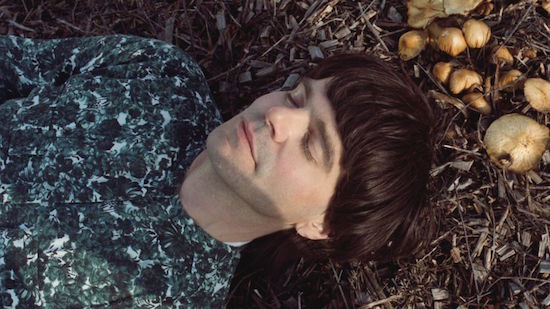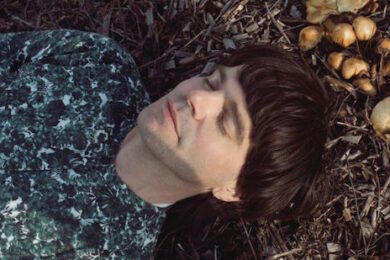There’s a thrill in sitting in a full cinema, hearing the laugh explode around the room, or the simultaneous gasps as the killer leaps out of the screen. There’s an almost opulent pleasure in sitting among the audience at one of the great opera houses, observing the rituals of applauding the conductor, and falling silent as the baton is raised. There’s a conspiratorial thrill in joining in on Twitter as something truly boggling unfolds on television.
Rock and pop, though, are unique among the arts in being based around the communal experience. From the bobbysoxers assembling to scream at Frank Sinatra, to the sea of humanity that gathers at Worthy Farm for the Glastonbury festival, a huge part of pop’s thrill comes from the feeling of being in an unpredictable mass that is as much participant as observer. You never hear Daniel Barenboim note that the concert wasn’t that great because the audience were just sitting there listening; you do hear it from rock musicians, with good reason. As Bruce Springsteen put it to me a few years back: "You’re dealing with the alchemy of yourself and your audience, and that’s a swirling, changing experience from moment to moment. I go out and I both guide and allow myself to be guided by the audience."
What do you do, though, when there’s no crowd? The lockdown world has had musicians performing live-streamed shows from their homes, but fun though they are, that’s not about a crowd’s response. Some club night and DJs have done ‘live’ DJ sets by putting together Spotify playlists as they go for you to dance to at home; Jarvis Cocker has started doing discos from his kitchen on Instagram on Saturday nights. Hundreds of thousands of people have followed hip-hop stars having online beat battles.
But one of the most heartening – and interactive – of the new communal experiences has been one of the lowest-tech. Twice a night, usually at nine and ten o’clock, Charlatans singer Tim Burgess puts on an album and invites Twitter users to do the same, using the hashtag #TimsTwitterListeningParty. He is joined, on Twitter, by people involved in making that album – usually the musicians themselves, and they Tweet along with each track, explaining what they were doing, while fans tweet in their own observations. It’s a genuinely enlightening way to listen to an album, and it’s an experience in which both musician and fan are involved.
Burgess first started hosting Twitter listening parties more than a decade ago, but they were occasional events for Charlatans albums or his own solo records. "The idea was inspired by Riz Ahmed," he says. "After a day in the studio, a friend and I switched on the TV to watch Four Lions, the Chris Morris comedy. Riz is in the film, and I followed him on Twitter. So the film started and I saw a tweet from Riz, to the effect of: ‘If you’re watching Four Lions on Channel 4, just keep an eye on me when I get out of the car in a second. I did 10 takes and started laughing each time. They eventually just used the one with the least laughing, but you’ll still see it.’ It was like an epiphany, I realised that you could tweet in realtime if everyone was doing the same thing at the same time. I asked my followers on Twitter if they’d be into the idea of playing the first Charlatans album at exactly the same moment all around the world, then I would tweet about the song, guitar solo, drum sound or whatever, as they were hearing it."
It was only with the lockdown that Burgess expanded beyond his own catalogue, and now he has musicians queuing up to be involved – hence the two albums a night policy (you can see the schedule here) – because they like the fact that people are actually sitting and listening to a whole album.
But there’s more to it than that. "Gigs are communal but albums are often solitary, so it’s a mix," Burgess says. "People can get anxious if they know they are in a house on their own, and safer with others around, if they don’t see them for hours. Like Schrödinger’s cat, but with records. You may be listening alone but it brings something to know that someone in Mexico, Australia or Finland is hearing the exact same thing as you are."
The Chemical Brothers are among those who have joined in, talking about their album Exit Planet Dust. Ed Simons of the duo notes that they came from a scene where the shared experience was vital. "People are highly sociable creatures who are deprived of physical proximity," he says. "That’s our main thrust – to relate and to be touched and to be understood, and to do things together. Rave culture and club culture is about that very close contact and having a similar experience in close proximity to each other."
Then there’s the added element that most of these musicians are, one way or another, performers. Even those who, like Simons, are not natural limelight chasers find the sudden absence of the adrenalin rush of being on stage to be discomfiting. "You perhaps become immune to how much you like doing what you do," he says. "It’s like when you’re a kid and you have a cold and you can’t breathe through your nose properly – I remember thinking as a kid that when I can breathe again I’ll really relish breathing. And there’s something of that now. We’ve missed two shows – we’d rehearsed, had a whole new show, and to not be able to do it makes you realise how much you miss it. There’s something very nourishing about doing that for people. This doesn’t come near that feeling but there’s something about bringing people together."
Most of all, Burgess says, it’s fun. Fun for him, fun for the bands, fun for the fans. And surprising, too – in the number of people going to Twitter to join in (it’s often a trending topic). "It was just a thing we did for ten years and now it’s a phenomenon – it’s possibly the longest drawn out overnight sensation internet success of this century."



